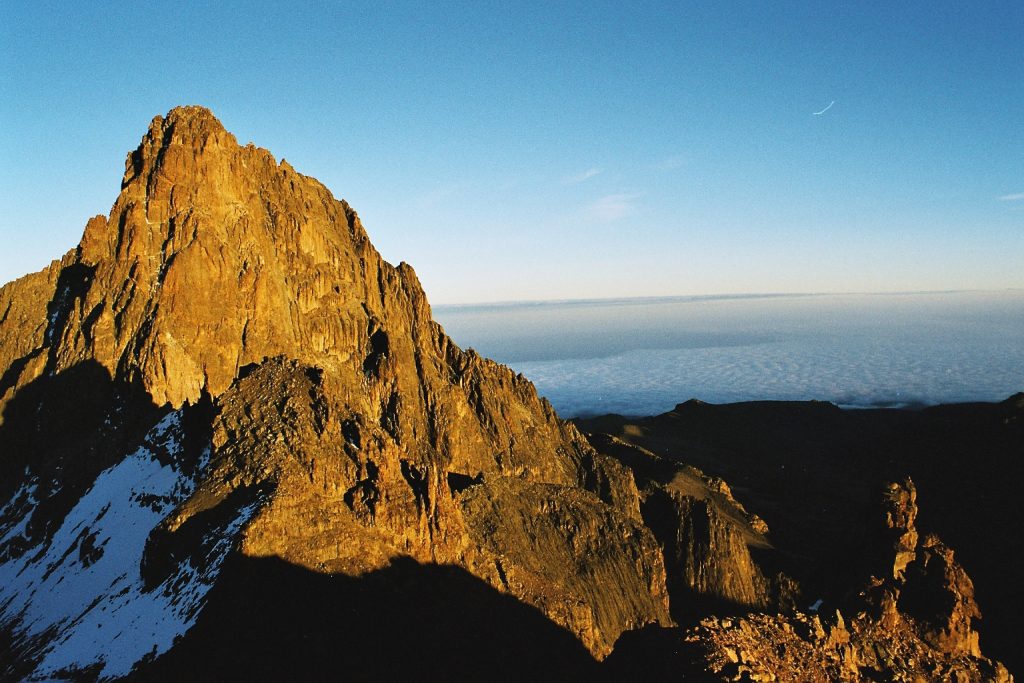Greater warming for tropical mountains
Tropical mountains could experience greater warming by climate change than climate models currently predict, a new temperature reconstruction on Mount Kenya, Africa’s second-highest peak, suggests. For their work, the international group of scientists made use of paleothermometers, a technique of tracking temperature through time which was developed over the past decade by NESSC-researcher prof. dr. Jaap Sinninghe Damsté and his colleagues. The study appeared on January 27 in the open access-journal Science Advances.
For the research, sediment cores taken from the bottom of Lake Rutundu, a volcanic lake on Mount Kenya at an elevation of around 10,000 feet, were investigated by the scientific team. Crucial for the study was the use of paleothermometers to determine temperatures of the past, tells Damsté. “Both techniques were discovered at the Royal Netherlands Institute for Sea Research (NIOZ) and were developed further across the past years with the help of colleagues.”

Key to the past
The paleothermometers are based on the fossilized remains of membranes from ancient microbes. The compounds, which are produced in microbial cell walls and are preserved in sediments on the bottom of the lake, form the key to determine temperatures through time. Damsté: “It remains unclear what kind of bacteria they were. But over the years we have calibrated the compounds and shown that the distribution between the different membranes correlates to the air temperatures during the time when the microbes were alive.”
Sediments from mountain lakes form an excellent geological archive, explains Damsté. “These sediments are carefully deposited in thin layers on the bottom of the lake where there is little oxygen available and there is hardly any life present. This means that the sediments are not perturbed. Under these conditions, organic materials does not decompose and is preserved.”
Warming mountains
The climate reconstruction shows that, as the world began to warm after the last ice age, temperatures on Mount Kenya increased much more quickly than in surrounding areas closer to sea level. At an elevation of 3.000 meters, mean temperature rose about 5.5 degrees Celsius, the scientists found, compared to warming of only 2 degrees at sea level during the same period.
Damsté: “This tells us something about the rate at which tropical mountains can warm up when the mean temperature increases globally. This effects appears to be much greater than what was previously assumed.”
These findings suggest, so warn the scientists in their article, that current climate change can result in much greater warming on tropical mountains than what climate models currently predict.
Publication:
‘The tropical lapse rate steepened during the Last Glacial Maximum’
Science Advances 2017. DOI: 10.1126/sciadv.1600815
E. Loomis, J. M. Russell, D. Verschuren, C. Morrill, G. De Cort, J. S. Sinninghe Damsté, D. Olago, H. Eggermont, F. A. Street-Perrott, M. A. Kelly

